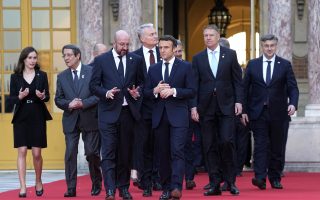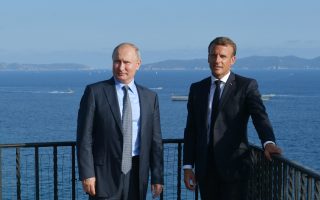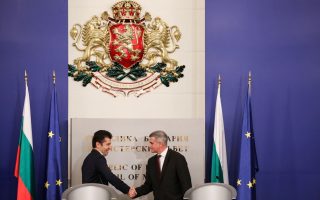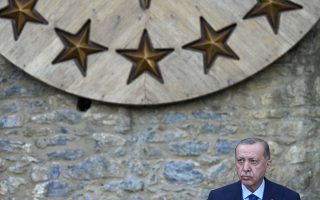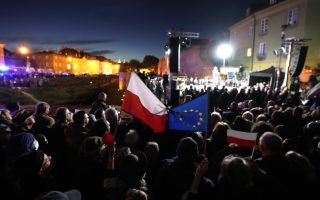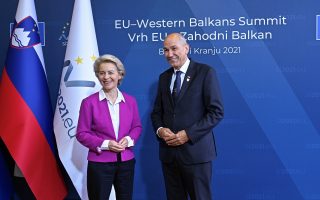The winner of the war: European identity based on values
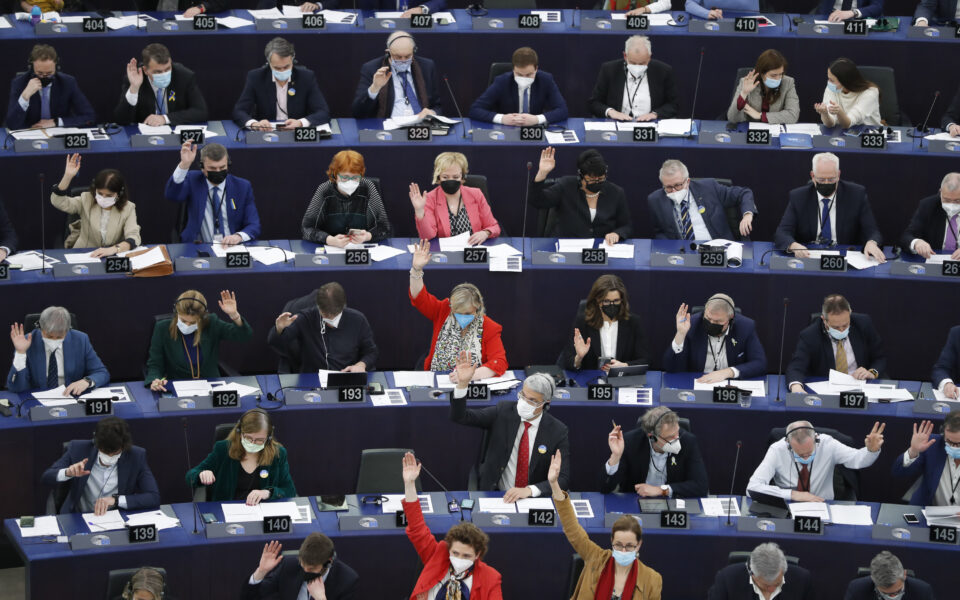
For years the European Union has been confronted with visible threats to its cohesion: Brexit, populist anti-European rhetoric, the violations of democratic principles and corruption in former socialist countries, the widening economic gap between member-states, the different reactions to the refugee crisis and to climate change. The Russian invasion of Ukraine seemed to unite the Europeans. “War is father of all,” said the dark philosopher Heraclitus. Father, I wonder, of a new united Europe?
In 480 BCE, the Persian invasion led warring Greek states to rally together and made the Greeks feel for the first time a sense of belonging. The Megarians who died during the Persian Wars proclaim from their grave through the verses of Simonides: “Wanting to bring to Greece and Megara the day of freedom, we accepted the fate of death.” The epigram does not name a specific enemy; it is addressed to anyone who in the future will threaten the freedom of all Greece. It is no accident that we find the first definition of identity in Herodotus, in connection with this war. He depicts the Athenians refusing to yield to Persian power, because their Greek identity (to Hellenikon) prevents them: “We have the same blood, the same language, common places of worship of the gods, common sacrifices, similar customs.” However, the Panhellenic alliance proved to be temporary. The European solidarity in the face of Russian aggression may also prove to be temporary. It is a negative sign that the agreement on energy policy is partial and seems unstable.
The brutal attack by the Putin regime in Ukraine is an occasion for reflection on the foundations of a European identity. We talk about “European civilization,” even though all the inhabitants of Europe have never spoken the same language, practiced the same religion, or accepted the same system of law. Europeans have never experienced history together; they have never won or lost a war together. Nor does Europe have the symbolic acts and rituals that usually forge an identity, such as common historical anniversaries. Only the International Charlemagne Prize reminds us that Charlemagne was in his time considered Europae pater – the father of a Europe as divided as today’s.
What will enable Europeans, inside and outside the EU, to develop a distinct identity is not a belief in the superiority of a ‘common European civilization’ but a belief in the superiority of shared values
A common feature of collective identities is the belief in the superiority of a community’s culture. This idea, occasionally promoted by (conservative) European politicians, has been rightly criticized. There is no homogeneous European culture with which Greeks and Bosnian Muslims, Norwegians and third-generation Turks in Germany, French Muslims and Lapps, Russian Jews and London Indians can identify. What has always characterized Europe has been cultural, linguistic and religious diversity. European identity cannot be built on the myth of a common cultural memory based exclusively on Greco-Roman antiquity and Christianity, and eliminating the memory of cultural diversity that includes not only the timeless and universal values of Classical antiquity but also the glory of Arab culture in medieval Spain, the culture of the Jews of Central and Eastern Europe, and the heritage of the Ottoman Empire. A European identity built on myths and selective memories has shaky foundations. Equally shaky is the illusion of economic superiority. We have seen that every economic crisis undermines European cohesion.
A solid foundation can be the common values created by the active participation and struggles of European citizens: self-determination, democracy, ecological sensitivities, respect for human rights, tolerance of diversity, freedom of expression, peaceful dispute resolution through negotiation and arbitration, the independence of the judiciary, the meritocratic advancement of knowledge. What will enable Europeans, inside and outside the EU, to develop a distinct identity is not a belief in the superiority of a “common European civilization” but a belief in the superiority of shared values. The great surprises of the war in Ukraine include the self-sacrifice of Ukrainians in defense of such values, but also the willingness of the majority of European citizens to accept some deprivations precisely because they believe in these values. European citizens are showing more maturity than some of their political leaders.
Angelos Chaniotis is a professor of ancient history and Classics at the Institute for Advanced Study in Princeton, NJ.
